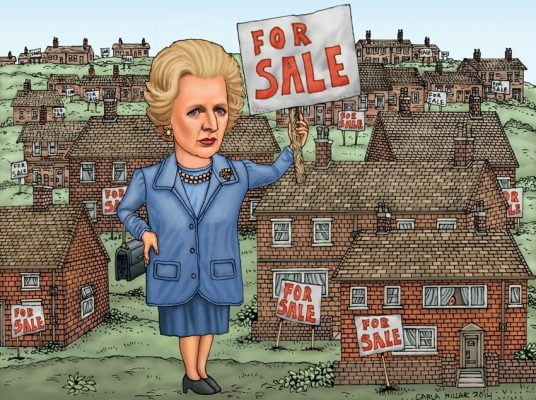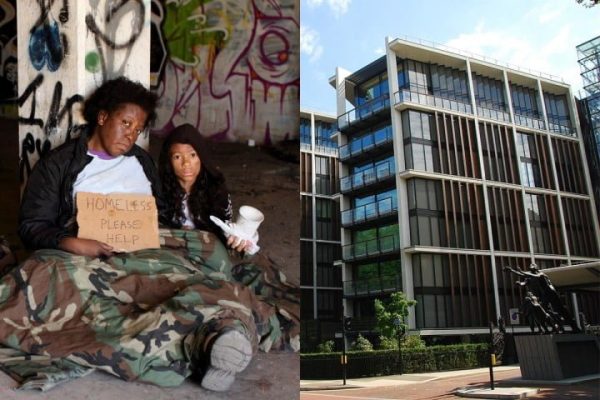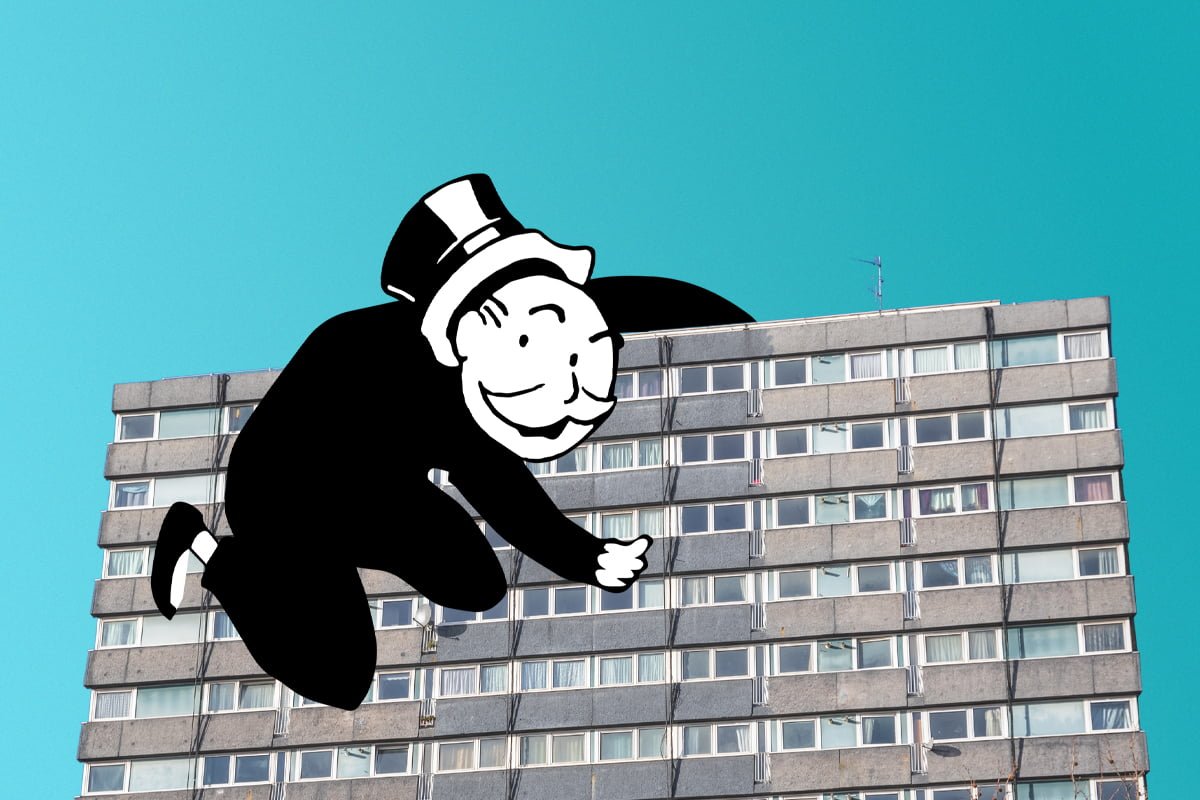A study by the charity Shelter has revealed the depth of Britain’s housing crisis. 260,000 social housing units have been lost in England over the past decade alone.
Despite the fact that for much more than ten years, there have been millions of households on the waiting list, British capitalism has responded by massively reducing the amount of social housing for them.
Today, 145,800 children are homeless – the highest ever figure in Britain. Rent levels are at all time highs, crippling the living standards of millions of people. Evictions are rising every year. Section 21 notices – ‘no fault’ evictions by landlords – jumped 38% in the year from 2022 to 2023.
This has led to an explosion in homelessness. But councils, ravaged by over a decade of austerity, are unable to meet their statutory obligations to house the homeless.
As a result, last year, hundreds of homeless families in London were permanently forced as far afield as the North East of England by local authorities.
Many were disgustingly given just 24 hours to accept being rehoused hundreds of miles away, on pain of being classified as ‘intentionally homeless’ and thus denied access to social housing.
That is to say that the public sector, crippled by austerity, and in the context of the blind forces of the market, is exiling people.
Right to Buy
 The background to this crisis is Thatcher’s Right to Buy scheme, one of the most ruinous and scandalous policies in British history. Before then, 42% of the population lived in council housing, i.e. out of reach of the profiteers.
The background to this crisis is Thatcher’s Right to Buy scheme, one of the most ruinous and scandalous policies in British history. Before then, 42% of the population lived in council housing, i.e. out of reach of the profiteers.
The Tories deliberately cut investment in maintaining social housing to a good standard, and then stigmatised it. Then, under the guise of liberating people from this stigmatised housing, they gave people the right to buy these homes at a cut down rate (or rather, to buy the leases to them).
This was combined with a host of policies designed to prevent councils from building more council housing to replace the stock that was sold off in this way.
Since the policy was introduced in 1980, over two million homes have been lost to the private sector, with only a tiny fraction of these having been replaced. That is why there is a permanent population of millions of people desperate for social housing but unable to get it.
Right to Buy was supposed to help create a ‘property owning democracy’, at least that was the spin. Supposedly, this army of homeowners would become politically conservative thanks to their new property.
Ironically, it has actually led to historically high levels of renting, because the council homes that were bought out, end up being sold on to big landlords who then jack up the rents.
Far from a society of placid, contented and conservative property owners, it has led to a generation of renters who are being radicalised by the injustices of the housing market.
And scandalously, Keir Starmer has abandoned Labour’s previous commitment to end the Right to Buy in England (it has already been scrapped in Scotland and Wales). This is simply a gift to the private landlords and property speculators who will continue to gobble-up what is left of Britain’s social housing stock.
Failure of the market
 As a result, Britain has one of the worst housing crises in the world. Britain’s homes are notoriously dilapidated, cold, energy inefficient, and generally substandard, and yet massively unaffordable.
As a result, Britain has one of the worst housing crises in the world. Britain’s homes are notoriously dilapidated, cold, energy inefficient, and generally substandard, and yet massively unaffordable.
As well as cutting living standards and making life precarious and unpredictable for millions, this has also dragged on the economy, as workers are unable to live near where there are jobs. Our creaking infrastructure groans under the weight of millions of unnecessarily long journeys as a result.
And yet, there are more empty homes than there are homeless people. The rich keep vast properties empty as ‘investments’. Banks help drive up the price of housing by speculating on the housing market.
What a deeply irrational system capitalism is. British capitalism has never been able to adequately house the working class. Only briefly, in the post war boom, did the housing conditions for the working class significantly improve, but this was due to state intervention and not the market.
Every single government sets itself inadequate goals for home building. But even these goals are never met, because they rely on the market, which is not interested in meeting needs, but in making profits.
For house builders, a permanent shortage of housing is a good thing, because it drives up prices.
People before profit
The only way this chronic crisis can be resolved is by planning the economy.
The construction firms and the big landlords must be nationalised, without compensation, and a massive programme of building affordable, high quality, energy efficient homes for social rent launched. The empty homes of the rich must be requisitioned to house the homeless.
In this way, in a short period of time, the scourge of homelessness, of shoddy housing, and of precariousness, can be ended.






